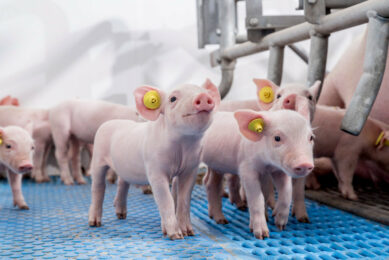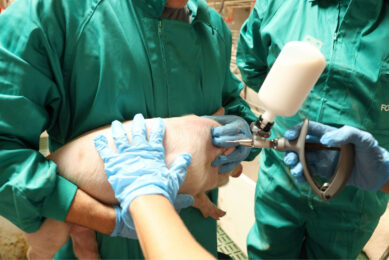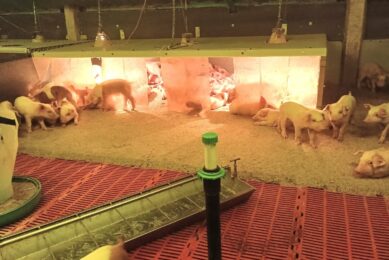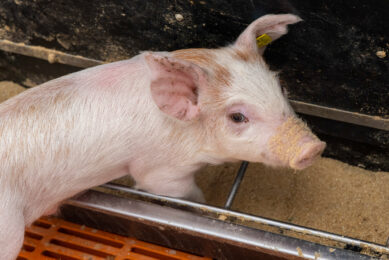Preventing piglet mortality in free farrowing pens
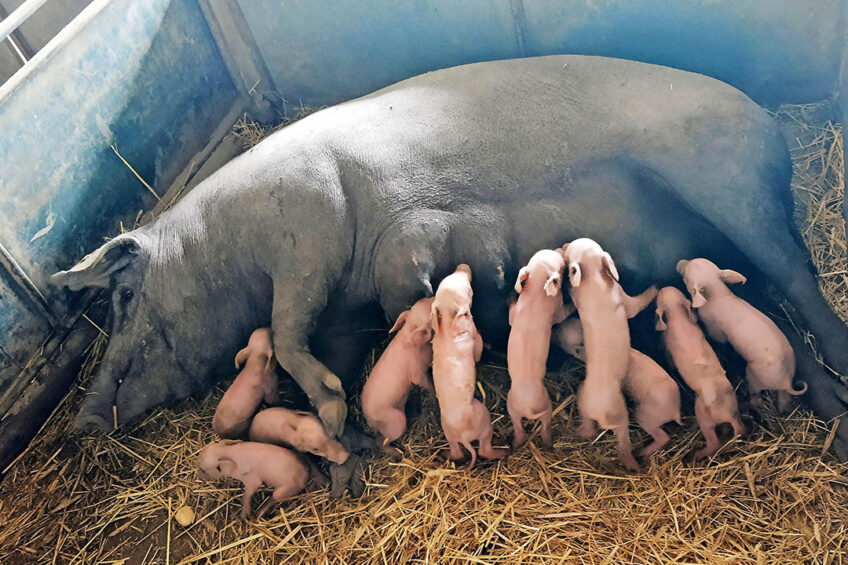
Free farrowing pens are increasingly promoted and implemented. The freedom of the sow to move comes with challenges, but also with benefits. While currently researching pigs at an extensive farm, pig welfare expert Dr Irene Camerlink was confronted again with the harsh reality of high piglet mortality. She shares some insights from long-term research on free farrowing and piglet mortality.
The hypothermia-starvation-crushing complex
There are 2 important reasons why there is a farrowing crate. It reduces piglet mortality by restricting the sow’s movement; and it increases worker safety. Removing the crate will predominantly bring up these 2 challenges. However, these are more of an end-result of other underlying issues.
Free farrowing expert Dr Emma Baxter explains that piglet crushing is often the ultimate but not the main cause of death. She emphasises that there is a hypothermia-starvation-crushing complex, whereby especially low birth weight piglets very quickly get too cold (hypothermia), do not get enough milk, and consequently do not have enough energy to avoid being crushed. It is therefore important to improve the vitality of the piglets, as well as to provide a warm and easily accessible area for them, and to incorporate pen features that prevent piglet crushing.
Human-pig interactions
Nervous or defensive sows increase the risk of crushing due to their increased movements when startled. Their behaviour is certainly not always easy to work with as some sows may readily attack. In most cases, sows have predominantly negative experiences with humans. Calm handling and positive interactions may surprisingly rapidly create a safer working situation. In my own experience, the work with sows goes much more smoothly and pleasant with a calm voice (as pigs do not see well) and a little handful of food as a compromise for any caused stress.
There are, however, some sows that remain aggressive towards humans. Genetics and past experiences play a role, and for free farrowing it is recommended to select the sows on their behaviour as well as productivity.
Providing the sow and piglets with what they need
Many sows have an excellent innate sense for maternal care and are doing their best to be very careful when lying down. The increased body size that sows have been bred for, coupled with poor leg strength, is not in their benefit when it comes to movement. They need support to lie down gradually.
Placing a sloping wall in the pen can for example help with this, and at the same time creates a safe area for piglets. When the sow can lie down comfortably, it is easier for her to nurse the piglets and to provide them access to her udder. Doing free farrowing well requires more than just removing the crate.

Read also: Improving the chances of piglet survival
Reaping the benefits
When attention is paid to the farrowing pen size and design, the maternal care and calmness of the sows, and the vitality of the piglets at birth, then good results can be obtained. Research shows a higher growth rate in free farrowing systems and similar mortality levels as in crated systems, but there is a large variation between farms.
To get the best results, the whole system needs to be considered; including genetics, nutrition and management. The website Free Farrowing is an excellent research-based practical website to learn more about how to start with, or improve, free farrowing management.



